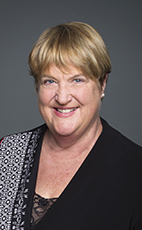Mr. Speaker, we are a year in and many people are struggling with COVID. They rely on expert advice. I will quote just one person's frustration regarding vaccine messaging: “I am so tired. I was excited to get my first vaccine and suddenly I am told it is not the preferred dose. Now I’m questioning why I was told to take the first dose available. In the meantime, my 92-year-old father can’t get his second shot as advised.”
When will the minister take responsibility for these failures in communication and delivery?

